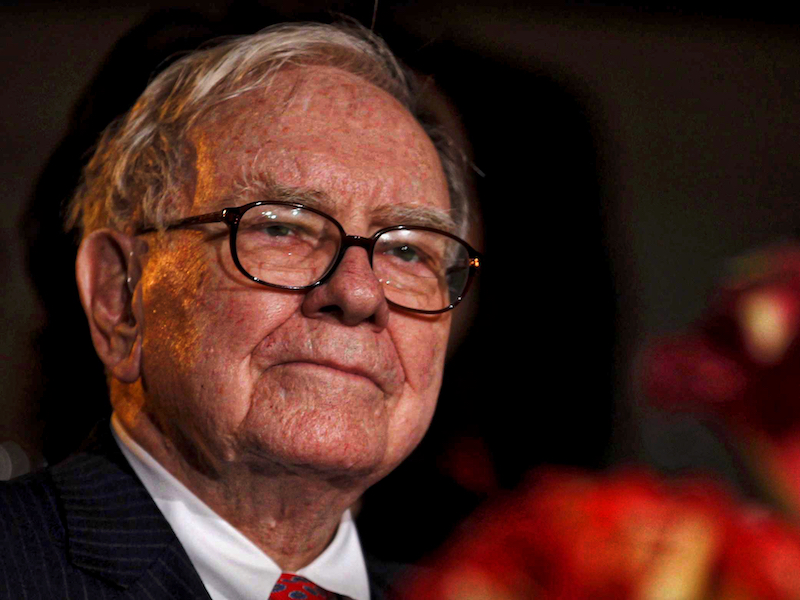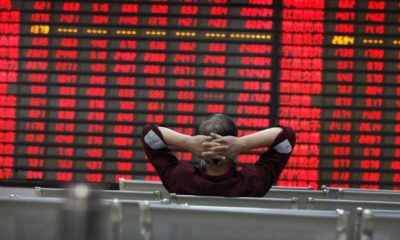Investment
Warren Buffett’s Investment Strategy: A Breakdown

Warren Buffett is in a league of his own when it comes to successful investors.
What is Warren Buffett's investment strategy?
How does he decide where and when to buy his stocks?
When people refer to him as the “Oracle of Omaha”, it’s easy to wonder if Warren Buffet can indeed see the future.
His uncanny ability to pick the right companies to invest in throughout his long career have earned him over 60 billion dollars to date, making him the most financially successful investor of all time.
The Five Basic Elements of Buffet’s Investment Strategy
While Buffet’s secret crystal ball has yet to be discovered, his overarching investment strategy on evaluating companies boils down to several key:
- Consistent returns over time
- Little to no debt owed
- Growing profit margins
- Long history of success
- Relatively cheap stock value
[ms_divider style=”normal” align=”left” width=”100%” margin_top=”30″ margin_bottom=”30″ border_size=”5″ border_color=”#f2f2f2″ icon=”” class=”” id=””][/ms_divider]
[ms_featurebox style=”4″ title_font_size=”18″ title_color=”#2b2b2b” icon_circle=”no” icon_size=”46″ title=”Recommended Link” icon=”” alignment=”left” icon_animation_type=”” icon_color=”” icon_background_color=”” icon_border_color=”” icon_border_width=”0″ flip_icon=”none” spinning_icon=”no” icon_image=”” icon_image_width=”0″ icon_image_height=”” link_url=”https://offers.thecapitalist.com/p/warrenbuffet/index” link_target=”_blank” link_text=”Click Here To Find Out What It Said…” link_color=”#4885bf” content_color=”” content_box_background_color=”” class=”” id=””]Warren Buffett Just Told His Heirs What He Wants them To Do With His Fortune When He Dies. [/ms_featurebox]
[ms_divider style=”normal” align=”left” width=”100%” margin_top=”30″ margin_bottom=”30″ border_size=”5″ border_color=”#f2f2f2″ icon=”” class=”” id=””][/ms_divider]
How Long Has The Company Been Doing Well?
A company that is consistently getting positive returns over several years is worth looking at.
Although a good return on equity (ROE) indicates that stockholders are indeed earning money on their investments, Buffett’s strategy gives preference to companies that have been able to maintain their profits consistently over long periods.
A good timeframe to evaluate a company’s returns is ideally 5-10 years.
What Is The Company’s Debt Level Like?
As part of Warren Buffett's investment strategy, he takes a close look at how a company’s debt stacks up to its equity before deciding to invest.
A company with a high amount of debt may suggest that its profit margins reflect borrowed money rather than actual value generated by products and services.
Also, interest rates from indebted companies will negatively affect the stock value and diminish returns.
Are Profit Margins Large, And Getting Larger?
In the ruthlessly competitive world of business, the rule is simple: grow or die.
Not only does a company need to be pulling in high-profit margins to be worth your time, but those margins need to be steadily increasing over time as well.
Healthy profit margins are good for investors for obvious reasons, but if they increase over time it often means that the company is becoming more efficient and is effectively cutting back on expenses.
Similar to looking at a company’s ROE, you should typically look at how margins have increased over a period of about 5-10 years.
Has The Company Been On The Market Long?
If a company hasn’t been in business for more than ten years, chances are, Buffett isn’t interested.
Many new companies, particularly in the technology sector, will not last for more than a decade after their initial public trade.
By overlooking companies that have yet to prove they’re here to stay, risky investments in untested products and services can be avoided.
Of course, a company doing well in the past does not mean it is going to do well in the future.
That’s why this criterion is only one of several factors a wise investor needs to consider before determining how well a company is going to do in the coming years.
Does The Company Provide A Unique Product Or Service?
Buffett tends to gravitate towards companies that are set apart from their competitors in some way—there needs to be something unique about what they do or sell.
Companies that are dependent on commodities like oil and gas, for example, are not distinctive enough to be competitive in the long term according to Buffett.
When a company does have that unique advantage, however, it makes it a lot harder for the competition to take market share away.
When Is The Best Time To Buy Stock?
So you’ve decided to invest in a company based on the previous questions.
When should you buy?
By looking at several essential factors regarding a company’s revenue, profit margins, assets, and expenses, Buffett determines the intrinsic value of the company.
He compares this determined value with what the company’s stocks are currently selling for.
If the company’s intrinsic value is at least 25% higher than its current stock value, it is likely a worthwhile investment.
The Key to the Puzzle: Intrinsic Value
The most important aspect of Buffett’s unparalleled success is his ability to determine the intrinsic value of companies with unrivaled precision.
While the tactics and evaluations described above are certainly part of his overarching strategy and may even make it look easy, it is this fundamental skill that ultimately separates Buffett from those who attempt to adapt his methods.
Value is the underlying core principle of Warren Buffett's investment strategy.
Conclusion
When it comes to investing his fortune, Buffett is much more likely to go with companies that are unique, time-tested, and increasingly profitable. This basic, down-to-earth approach has elevated him to be one of the richest men in the world.
While following Warren Buffett's investment strategy may prove to be fruitful for some, it’s safe to say that there’s little substitute for Warren Buffet when it comes to determining intrinsic value.















